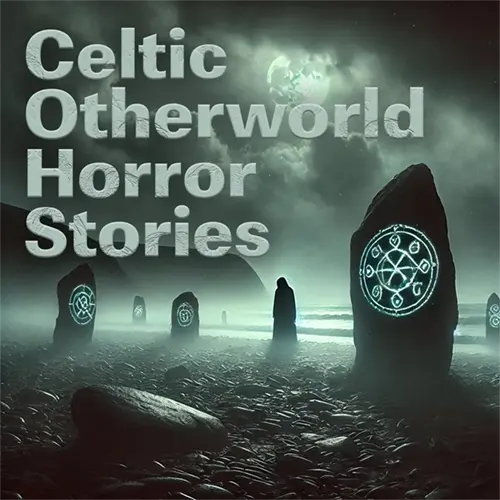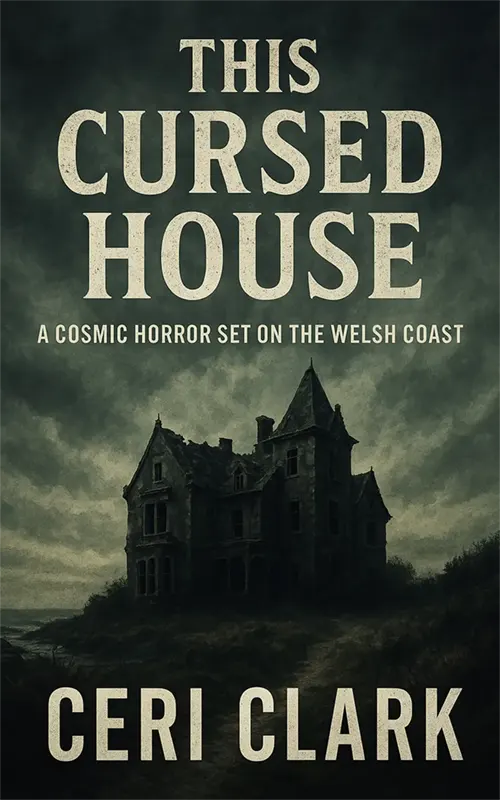From Folklore to Creepypasta: Writing the Celtic Horror Stories  That Keep You Up at Night
That Keep You Up at Night
They always start the same way—small, strange things. A whisper in an empty farmhouse. A page in a book you don’t remember writing. A reflection that moves a little too slowly.
That’s the heart of Celtic Otherworld Horror Stories—a podcast and book series where ancient Welsh folklore bleeds into modern creepypasta-style dread. And if you’re drawn to writing creepy tales that gnaw at the edges of your mind, you’re not alone. That’s exactly how this project began.
The Quiet Terror of Creepypasta
Creepypasta, in its viral internet form, thrives on brevity and mystery. The best ones don’t explain too much. They leave you wondering if it could be real—just for a moment.
That idea stuck with me. What if I took that structure—unsettling stories with lingering ends—and wove it through the deep roots of Welsh myth? Instead of haunted dolls or cursed videos, what if the horror was something older, deeper? Something buried beneath the hills of Ceredigion, whispering in a language no one’s spoken in centuries?
Writing Horror That Remembers
The stories in Celtic Otherworld Horror Stories come from a place of remembering. As a writer (and folklorist at heart), I started seeing patterns in old tales—the same warnings echoed in modern creepypasta: Don’t look too closely. Don’t stay after dark. Don’t dig too deep.
I wanted to craft stories that felt unearthed rather than invented. Writing them meant walking a line between folklore and fiction—between scholarly research and letting the hairs on the back of my neck tell me when a story was done.
Each tale begins quietly. A misfiled book. A voice that doesn’t belong. A local who won’t answer your question directly. And then… the crack widens.
Why the Celtic Otherworld Still Haunts Us
Welsh mythology has its own version of the underworld—Annwn. But it isn’t a place of fire or torment. It’s quieter than that. Stranger. It sleeps beneath us, and sometimes it dreams through us.
In the stories, that dream slips into reality. The protagonists are librarians, scholars, outsiders—all people who write things down. Because writing, like folklore, keeps things alive. And not everything wants to stay forgotten.
If You’re Writing Creepy Stories Too…
Here’s something I learned: horror doesn’t always need a monster. Sometimes the most effective creepypasta-style writing comes from what’s missing—what’s almost said.
Try this:
Don’t explain everything.
Let the story feel like it’s part of something bigger.
End with a question, not an answer.
Most of all, write the story that unsettles you.
Listen. Read. Don’t Turn Around.
If you’re ready to explore the darker side of folklore and writing, the Celtic Otherworld Horror Stories podcast is waiting for you. Every Thursday, a new tale unfolds—narrated like an old legend retold by candlelight.
 You can also dive deeper in the companion book: This Cursed House: A Cosmic Horror Set on the Welsh Coast. Each story stands alone… but they’re all connected by something older than time.
You can also dive deeper in the companion book: This Cursed House: A Cosmic Horror Set on the Welsh Coast. Each story stands alone… but they’re all connected by something older than time.
Find Out More
Listen on YouTube
Read the book
Subscribe for new stories and posts using he sidebar or footer form.
You shouldn’t be here, the old man said. The sea takes what it’s owed.
It’s just a story.
Isn’t it?
